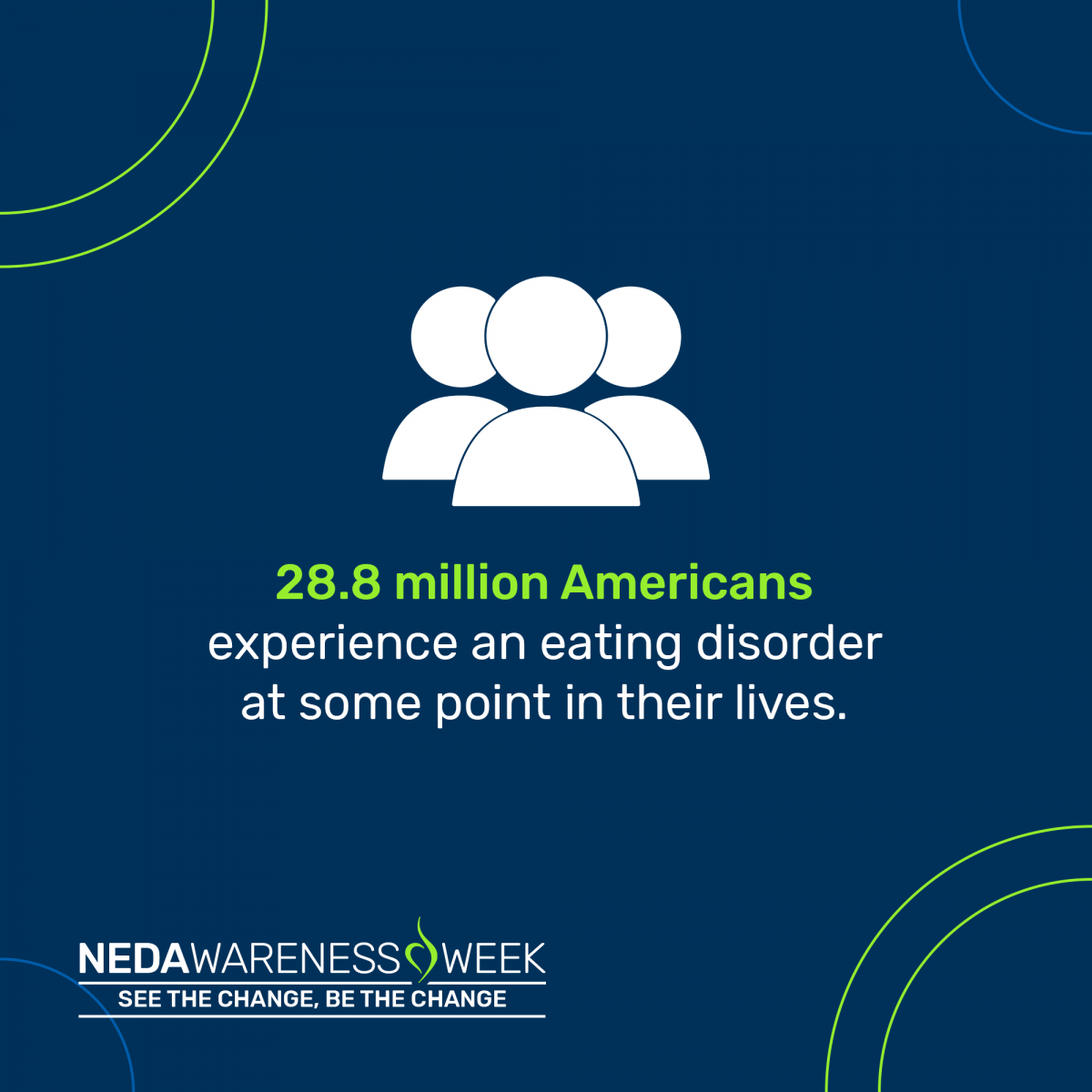What Are The Consequences Of Eating Disorders?
March 1, 2022
Eating disorders are often glamorized on social media, but their realities are far from anything beautiful. Eating disorders are serious illnesses, and have the capability to be life threatening. When one undergoes an eating disorder, both their physical and mental health are at risk.
With many eating disorders, the body enters a fight or flight mode. The body is no longer able to trust the individual to properly meet its needs, and therefore one becomes out of tune with their hunger signals. The body is unable to depend on the human to adequately and frequently provide the food and nutrition it needs to function.
But being out of tune with one’s body is just the beginning of many dangerous effects. When the body does not receive enough calories, it begins to break down its own tissue for a source of fuel. The body’s resting metabolic state is then also reduced, as the body desperately attempts to conserve energy, Muscles are the first tissue to be broken down, which means the heart, the body’s most important muscle, will be greatly affected. The NEDA explains how as the blood has less fuel to pump blood, pulse and blood pressure begins to drop, increasing the risk for heart failure.

Restricting food and/or purging by vomiting skews the stomach’s “normal emptying and digestion of nutrients.” As a result, digestion becomes slowed, causing symptoms such as bloating, constipation, blocked intestines of undigested food, bacterial infections, blood sugar fluctuations, and feelings of fullness after eating minimal amounts of food. Frequent vomiting can cause sore throats, a hoarse voice, and in worst scenarios, cause the esophagus to rupture. Binge eating in particular can cause the stomach to rupture, which is “life-threatening.” Consumption of nonfood items, which is present in eating disorders like Pica, can cause blockages in the intestines or infections, as foreign materials can poison the body.
Restriction, starvation, and/or irregular eating patterns result in a decrease of energy given to the brain. As a consequence, individuals with eating disorders tend to experience brain fog and food-obsessive thoughts consume one’s head. The irregularity and/or lack of eating can also cause difficulty sleeping for individuals. Some of the neurological risks are more severe, such as risks of fainting if the brain does receive enough blood. Along with this, the NEDA analyzes how the “body’s neurons require an insulating, protective layer of lipids” in order to conduct electricity. An insufficient fat intake can damage this layer, and cause feelings of numbness and tingling in body parts like the hands.
A low caloric and fat intake can cause dry skin and brittle hair that may start to fall out. The inadequate nutrition in eating disorders can decrease the number of certain blood cells, like the infection-fighting white blood cells, which can lead to becoming ill more easily or the development of anemia. In eating disorders like Anorexia Nervosa, where the body is in starvation mode, hair will begin to grow as the body tries to preserve warmth.
Eating disorders do not just negatively affect physical health; they take a massive toll on one’s mental health as well. Body dysmorphia, body image dissatisfaction, fear foods, obsessive and controlling food thoughts and rules – these are just a few of the symptoms that may cause the mental health of an eating disorder victim to suffer. As one battles their illness, their personality may alter, and they become more irritable and easily angered. Those struggling with eating disorders may begin to isolate themselves, causing them to grow distant from friends and family. Some patients may have been medically required to halt exercise until they are in a healthier place, which greatly impacts those whose passion lies within a sport.